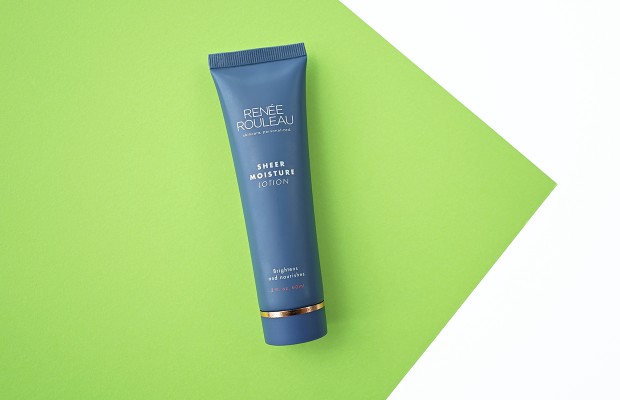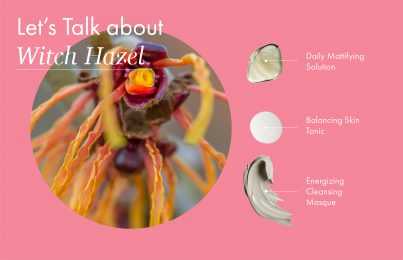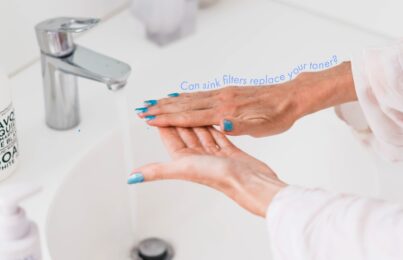Updated 12/1/17. As someone with oily skin, I’m always trying to reduce oil production in my own skin to keep the shine under control. While I can never make the skin stop producing oil altogether, there are definitely things I can do to slow the flow. In this this post, I’ll share all my expert tips to help you get your skin to act less oily.
- Personal experiences with my own oily skin
- How to reduce oil on your skin and face
- 1. Always use a gentle cleanser to wash your skin.
- 2. Never leave your skin bare for longer than 60 seconds after washing.
- 3. Use an alcohol-free toner left damp on the skin before applying a moisturizer.
- 4. Blot your skin throughout the day with blotting papers or tissue.
- 5. Exfoliate the skin several times a week using a well-formulated salicylic acid serum.
What I’ve discovered through my own experiences as well as working with clients hands-on for 30 years as an esthetician is that the amount of oil your skin produces is directly tied to the hydration levels in your skin. Oily skins don’t need additional oil (which is why lightweight or oil-free moisturizers are recommended), but what you do need is water. When the skin doesn’t have the proper water levels it needs to function in a healthy way, the skin attempts to balance itself by stimulating the nerve endings at the base of the pore. These nerve endings are connected to oil glands when when stimulated from overly harsh products, they send a message to the oil glands that it’s time to make sure oil. This is all in an effort to compensate for the lack of water. When the oil starts pushing through it may also encounter a clog and cause bacteria that will lead to a blemish. Simply put, skin cells are like fish, they need water to live and without it, your skin will appear oiler with an increased chance of breakout activity.
Personal experiences with my own oily skin
Here are three examples that I personally experienced with my own oily skin (I’m a skin type #2) so you can truly understand the hydration concept further:
Example #1
Several years ago, a new lab sent me a sample of a gel cleanser to try. They didn’t include the ingredients of the cleanser so I didn’t know exactly what was in it, but I went ahead and tried it anyway. The next day, my skin was SO oily. I couldn’t figure out why my skin was so oily until I remembered the only thing I had done differently was to use this cleanser the night before. I contacted the lab and sure enough, it contained one ingredient that is an absolute no-no to use on all skin types—Sodium Lauryl Sulfate. Yuck! This ingredient is a strong cleansing detergent and very dehydrating, which is why it caused my skin to produce more oil. (In my skincare line, all of the cleansers are gentle and sulfate-free.)
Example #2
A few years back, I flew to France to visit my husband’s family and to research French skin care. Because the cabin of an airplane has very little moisture, my skin gets extremely oily when I fly. (Dry skin types get even more dry on an airplane, while us oily skin types get greasier.) On the flight over, I used six oil-blotting papers over the course of the eleven-hour flight to control the shine. A week later on the flight back, I only had to use two oil-blotting papers. I was confused as to why every time I was blotting, barely any oil was showing up on the paper. Why was I less oily on the flight back to the states? It finally occurred to me that the day before we left I had gotten a wonderful facial. My skin was extremely hydrated, so it wasn’t as affected by the dry cabin air, resulting in less oil being produced! Crazy, huh?
Example #3
One year, I was in charge of making the turkey for Thanksgiving. I was so nervous that it wouldn’t be cooked correctly so all day long, I kept opening up the oven door to check in on it. Every time I would do this, I’d have a blast of hot air that would hit my face. I noticed that my skin go so oily and I immediately knew it was because the water had evaporated from within my skin setting off an oil production response.
I share these examples because it’s really important that you fully understand this. I also wrote a great post about understanding the difference between dry skin and dehydrated skin so I highly recommend that you read this. Oily skin types get dehydrated—not dry.
When it comes to skin care products for oily skin, most skin care companies focus on products that simply remove the oil by using strong, harsh and dehydrating ingredients. While it will give you an immediate ‘tight’ feeling and temporarily remove the oil, it then creates a backlash hours later with an increase in oil production. The moral of this story is, DO use products for oily skin but DON’T use anything that leaves your skin feeling tight—and using a lightweight moisturizer is a must!
How to reduce oil on your skin and face
The most effective way to reduce oil on your skin and face is to keep proper water levels in the skin. This is because the use of harsh, overly drying products can stimulate nerve ends, which leads to oil production. Typically, the use of gentle skincare products such as a non-drying, sulfate-free cleanser, gel-based masks and oil-free lotions and moisturizers will help reduce the amount of oil. These techniques and more are explained in my five ways to reduce oil production in your skin, below.
1. Always use a gentle cleanser to wash your skin.
Avoid the ingredients Sodium Lauryl Sulfate, Sodium Laureth Sulfate, Ammonium Laureth Sulfate and Ammonium Lauryl Sulfate in your cleanser. It’s imperative that you don’t pull water out of the skin during the first part of your skincare routine.
2. Never leave your skin bare for longer than 60 seconds after washing.
After cleansing, you must IMMEDIATELY follow with your next product. Ideally this would be an alcohol-free toner, serum and then your moisturizer. If you leave your skin bare for more than one minute, it will start to dehydrate as the dry air attracts moisture out of the skin. (It’s through a process called osmosis.) Perform your skin care routine quickly so your skin is protected to avoid the tight and dry feeling.
3. Use an alcohol-free toner left damp on the skin before applying a moisturizer.
Oily skin types will generally shy away from using a moisturizer that remotely feels heavy—and with good reason. Your skin doesn’t need the heavy oils as you have your own oil built right in. I recommend that you use a lightweight lotion but to deliver additional water into the skin, apply a toner on the skin post-cleansing to dramatically increase water levels. Always leave it damp before your next product is applied so that you seal the hydration into the skin. Read all five benefits of using a toner.
4. Blot your skin throughout the day with blotting papers or tissue.
Truly, it’s the fastest and easiest way to get rid of oil. I know we all want a miracle product that will keep us matte-looking all day long but you simply can’t entirely stop what Mother Nature wants to do. Blotting is simple and effective.
5. Exfoliate the skin several times a week using a well-formulated salicylic acid serum.
If you have dead cells on the surface, the skin will note that as dehydration and again, try to pump out more oil. Keeping expired cells off the skin will encourage new healthy cells to take it’s place. What I suggest to my oily skin clients is to use a clarifying serum several nights a week to encourage cell renewal. In addition, since it uses salicylic acid it has has the capability of getting deep into the pore lining to remove dead cells that leads to clogged pores and breakouts It will reveal a newly refined smoothness and clarity in the skin as well as fade any discolored marks from breakouts. (It’s a celebrity favorite!)
Bottom line
If you’re someone who cleanses skin in the morning only to find a complete oil slick by noon, it’s definitely a topical dehydration issue, and don’t let anyone tell you anything different. Lastly, as for drinking water… did you know that when you drink water, it doesn’t go directly to the skin? It runs through the intestines, gets absorbed into your bloodstream, and then is filtered out by the kidneys. At this point, it will hydrate the cells inside the body.
Hydration levels in the skin have very little to do with drinking water internally, but rather how you treat your skin on the surface. For example, if you’re using harsh bar soaps and detergent-based cleansers to wash your face, they will have a bigger impact on the lack of hydration in the skin than not drinking water ever will. Watch this video to see what dehydrated skin actually looks like.
Which skin care products are best for you? See our nine skin types or take the Skin Type Quiz and get products recommended.
Need expert advice from a licensed esthetician? Schedule a virtual consultation to get customized advice in person, over the phone or online via Skype or FaceTime.
For more expert advice check out the blog. Also, sign up for our skin tip e-newsletter, follow Renée Rouleau on Twitter and Instagram and join the discussion on our Facebook page. You’ll be your own skin care expert in no time. Get the #ReneeRouleauGlow!
Celebrity Esthetician & Skincare Expert
As an esthetician trained in cosmetic chemistry, Renée Rouleau has spent 35 years researching skin, educating her audience, and building an award-winning line of products. Her hands-on experience as an esthetician and trusted skin care expert has created a real-world solution — products that are formulated for nine different types of skin so your face will get exactly what it needs to look and feel its best. Trusted by celebrities, editors, bloggers, and skincare obsessives around the globe, her vast real-world knowledge and constant research are why Marie Claire calls her “the most passionate skin practitioner we know.”




Comments:
I’m happy to find this blog. I’m 24 years old. Im already suffer for acne from i was in high school (abaout 18 or 19 years old) untill now. I very stressfull about my face. And i went to many dermatologis but the effect is not long lasting. Sometimes my face clear, but sometimes getting worse like now. Now i still have active acne on my face and i have oily skin becase my powder did not last long on my face, after about 2 hour or more putting my powder, my face become produce the oil out n look shiny. Now i have many acne and lot of post acne scar (red and black/dull) on my skin. It look like i have a full acne spread around my face. It horible. I not have a confidence in public and envy to see the people with flawless skin. I not dare to come out if i not using make up, at least bb cream and powder. My type of acne mostly Blackhead, whitehead, papules and pustules. Sometimes nodules are come out. Please help me the feed back, and i wanna ask, do you ship to indonesia? What kind of products do you recomend for me? Hope to hearing from you soon. Thank you.
Posted By: radha |
Hello Radha, Yes, we do ship to Indonesia. To see which products are best for you to use, take my Skin Type Quiz.
Posted By: Renée Rouleau |